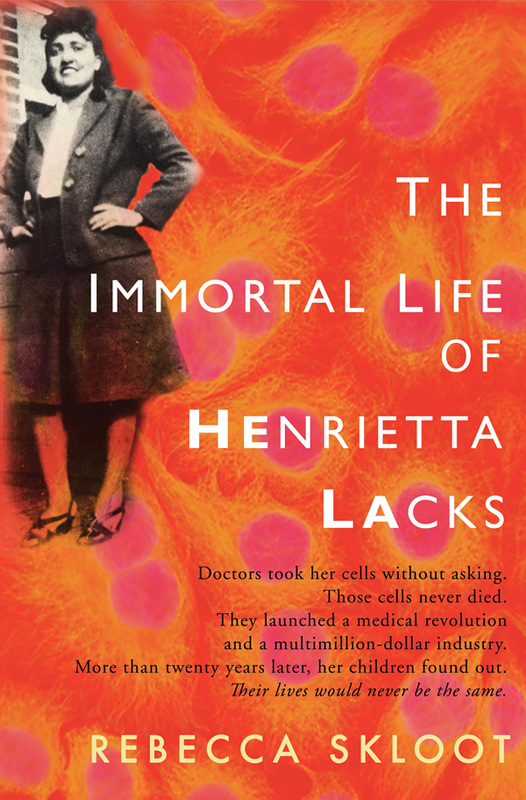I have to be honest and say that I rarely read books that are non-fiction. It's not that I don't like them, it's just that I spent fours year in college reading only textbooks and since then I feel like I've been trying to catch up on reading fiction. It has been almost four years since I graduated (how time flies!) so I think I'm slowing down in the fiction department and hopefully can achieve some sort of balance.
In the last month I joined a book club! Only I wasn't able to read the first book and I missed the first meeting. However, I am better prepared this time because I've already read the book for November and have the book for December in my hot little hands. No more will I end up on a long waiting list!
This may seem like a very ADHD blog post but I'm going to pull it all together with this sentence: The book I had to read for my book club for November was non-fiction and this post is a review for that book. So, here it goes:
I was surprised by this book because 1) the title made it sound like a fiction book and 2) I don't know very much about science. After getting over the first point, I came to realize that I didn't have to know much about science because Skloot explains it all in an easy way. She does this because she's trying to tell a story about science and human rights.
Henrietta Lacks, a black woman, went to a hospital in the 1950's because she had cancer. They treated her and took a sample of her cells without her consent (times were different back then). These cells did what no other cells at that time had done: they survived. They didn't die right away, in fact they kept growing. Since then Henrietta's cells, now named HeLa cells, have been used by scientists all over the world to help find cures for any number of diseases. They were also sent up into space to see how human cells would react in an anti-gravity atmosphere. Crazy, right?
So now your asking yourself, "Why didn't I learn about this in science class?" That's where Skloot comes in. She asked herself, "Who is this woman?" and the answer is heart-breaking. Henrietta ending up dying, leaving a whole family behind who had no idea of the impact she was making on science. In fact, her cells are being sold around the world for ridiculous amounts of money while her children could barely afford to go the local doctor.
This book asks a lot of questions about racial and ethcial issues surrounding medical research. Are the cells still yours if not a part of you anymore? Aren't they just considered waste? What if someone makes millions off of your "waste"? In the end Henrietta's daughter just wants her mother to be recognized and appreciated.
This story about the advancements of science and a family's struggle to understand it all is a good read. It makes you think about how there is so much in the world you don't know about...
The Wakeful Dreamer
In the last month I joined a book club! Only I wasn't able to read the first book and I missed the first meeting. However, I am better prepared this time because I've already read the book for November and have the book for December in my hot little hands. No more will I end up on a long waiting list!
This may seem like a very ADHD blog post but I'm going to pull it all together with this sentence: The book I had to read for my book club for November was non-fiction and this post is a review for that book. So, here it goes:
I was surprised by this book because 1) the title made it sound like a fiction book and 2) I don't know very much about science. After getting over the first point, I came to realize that I didn't have to know much about science because Skloot explains it all in an easy way. She does this because she's trying to tell a story about science and human rights.
Henrietta Lacks, a black woman, went to a hospital in the 1950's because she had cancer. They treated her and took a sample of her cells without her consent (times were different back then). These cells did what no other cells at that time had done: they survived. They didn't die right away, in fact they kept growing. Since then Henrietta's cells, now named HeLa cells, have been used by scientists all over the world to help find cures for any number of diseases. They were also sent up into space to see how human cells would react in an anti-gravity atmosphere. Crazy, right?
So now your asking yourself, "Why didn't I learn about this in science class?" That's where Skloot comes in. She asked herself, "Who is this woman?" and the answer is heart-breaking. Henrietta ending up dying, leaving a whole family behind who had no idea of the impact she was making on science. In fact, her cells are being sold around the world for ridiculous amounts of money while her children could barely afford to go the local doctor.
This book asks a lot of questions about racial and ethcial issues surrounding medical research. Are the cells still yours if not a part of you anymore? Aren't they just considered waste? What if someone makes millions off of your "waste"? In the end Henrietta's daughter just wants her mother to be recognized and appreciated.
This story about the advancements of science and a family's struggle to understand it all is a good read. It makes you think about how there is so much in the world you don't know about...
The Wakeful Dreamer

 RSS Feed
RSS Feed